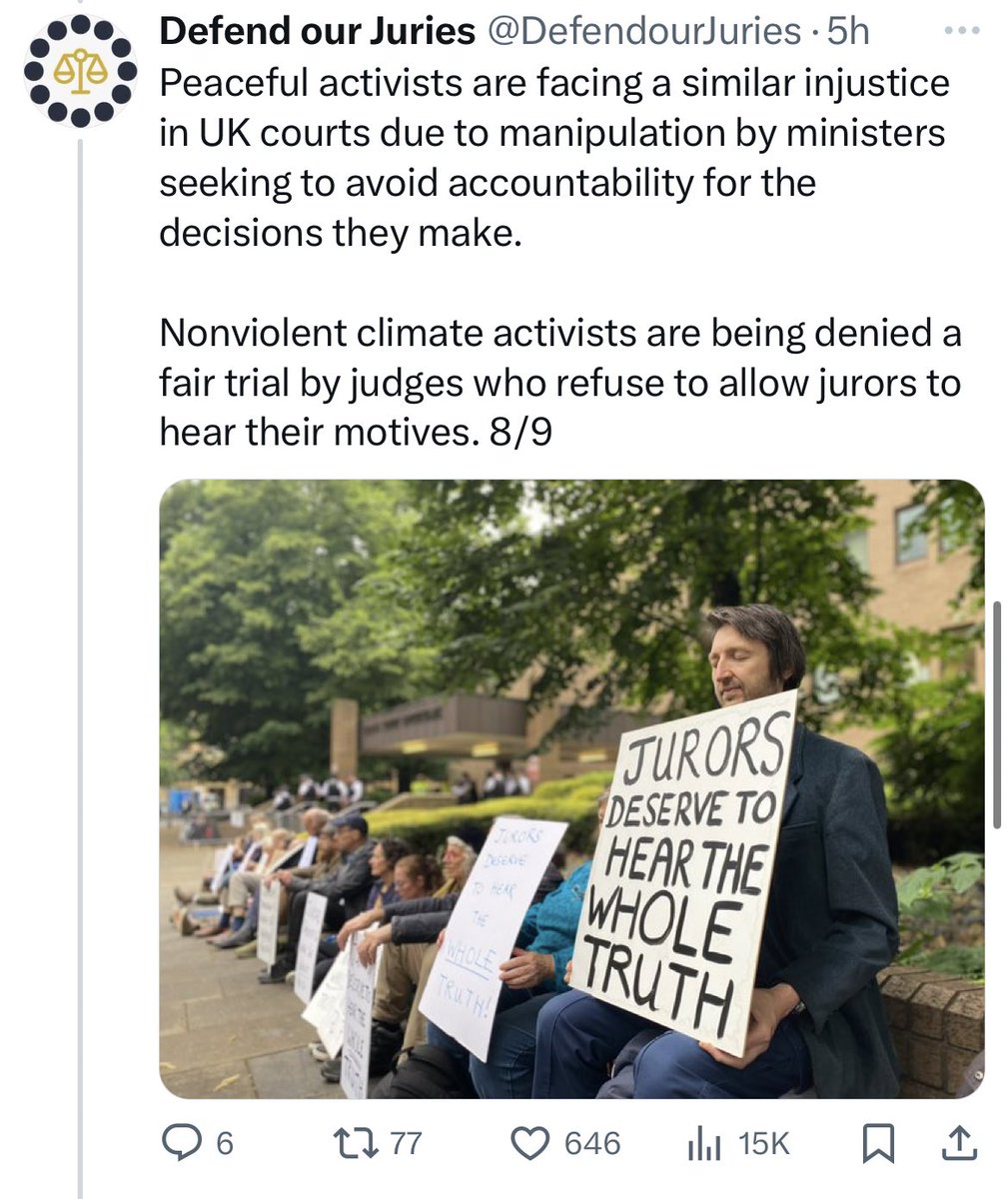Any politician of any party who claims that the answer to tackling violence against women is simply a matter of “tougher sentences” is not being honest with the public.
Let me tell you about a case I’m currently prosecuting. [THREAD]
Let me tell you about a case I’m currently prosecuting. [THREAD]
The case involves allegations of serious domestic violence and coercive/controlling behaviour. The offences go back to 2016. They were reported in 2017. This is not unusual in cases of domestic abuse - often victims delay reporting out of fear.
It then took eighteen months for the police to investigate.
Eighteen months.
Why? Partly because this case, like many of its type, relied on mobile phone evidence. Texts to show the defendant’s behaviour, or to prove contemporaneous complaint by the complainant to her friends.
Eighteen months.
Why? Partly because this case, like many of its type, relied on mobile phone evidence. Texts to show the defendant’s behaviour, or to prove contemporaneous complaint by the complainant to her friends.
And currently, due to police cuts and the government’s refusal to fund Digital Investigation Units, there is backlog of at least 12 months to examine digital devices in most areas of the country.
Part of the delay in investigating was because the police had to obtain other evidence - medical records, further witness statements - which involved liaising with the Crown Prosecution Service for advice. CPS has also been defunded and is understaffed. So further delay.
Once a charging decision was finally made, the case took six months to come to court.
Not for trial. Just for the first hearing before the magistrates.
Why? Because the government defunded the police and the courts. This type of delay is now standard.
Not for trial. Just for the first hearing before the magistrates.
Why? Because the government defunded the police and the courts. This type of delay is now standard.
https://twitter.com/barristersecret/status/1351969721286070273
The case was then sent to the Crown Court, as the defendant denied the charges.
And it joined the queue for a trial slot. Which, even pre-Covid, was at least a year.
Why?
Because the government defunded the courts. It deliberately increased the backlog. standard.co.uk/news/politics/…
And it joined the queue for a trial slot. Which, even pre-Covid, was at least a year.
Why?
Because the government defunded the courts. It deliberately increased the backlog. standard.co.uk/news/politics/…
Its first trial slot was adjourned for “lack of court time” - ie there was a courtroom, and there was a judge, but the court was forbidden by the government’s artificial restrictions on “court sitting days” to actually hold a trial.
Yes. Really.
So the trial went off.
Yes. Really.
So the trial went off.
Then Covid hit. And the government still refused to resource criminal justice. It took months and months and months before they opened even a single Covid-safe “Nightingale Court”.
The trial was adjourned again, to Summer 2021.
There is still no guarantee it will go ahead.
The trial was adjourned again, to Summer 2021.
There is still no guarantee it will go ahead.
https://twitter.com/barristersecret/status/1317108349993914368
During this time, the defendant has been on bail. If he is the violent, manipulative man that the prosecution believe, that is four years he has had to exert pressure on the complainant not to cooperate. Four years to start new relationships. To repeat the same behaviours.
Meanwhile, the complainant has been trying to move on. I am waiting for the grimly familiar memo from the police advising me that she has withdrawn her support for the prosecution as she can’t take the process any longer.
Nobody could blame her.
Nobody could blame her.
If by some miracle the trial goes ahead, her evidence will inevitably be affected by the passage of time. Truthful mistakes about small things might be misinterpreted as significant lies. Honest best efforts might not be enough to persuade a jury.
Then the kicker. Defendants who are convicted and sentenced can expect to receive a lesser sentence than they otherwise would.
Why?
Because state-caused delay is a mitigating factor that courts can take into account (see this thread).
Why?
Because state-caused delay is a mitigating factor that courts can take into account (see this thread).
https://twitter.com/barristersecret/status/1358701736647655425
There is nothing unusual about this case. Every criminal practitioner will have many like it. The compounded delay and denial of justice is not restricted to cases of domestic abuse, but they are among the worst affected.
And as we know, the consequences can be terrible.
And as we know, the consequences can be terrible.
This shambles of a system - it does not deserve the label “justice” - is what politicians should be apologising for, and promising to fix.
Fund police, prosecutors, refuges, courts, probation - do something about investigation, detection, prosecution and prevention.
Fund police, prosecutors, refuges, courts, probation - do something about investigation, detection, prosecution and prevention.
There has never been a better time to be a criminal than under @BorisJohnson’s government.
There has never been a better time to be violent towards women and get away with it.
And by claiming it is fixed by “tough sentences” they take you for fools.
There has never been a better time to be violent towards women and get away with it.
And by claiming it is fixed by “tough sentences” they take you for fools.
https://twitter.com/barristersecret/status/1305846042714353669?s=21https://t.co/Ic0ggncxhw
POSTSCRIPT:
I started writing Stories of The Law and How It’s Broken in 2016.
It was published in 2018.
The public crowdfunded a copy for every single MP, including most of the current cabinet.
In 2021, things are now even worse.
That is solely on our politicians.
I started writing Stories of The Law and How It’s Broken in 2016.
It was published in 2018.
The public crowdfunded a copy for every single MP, including most of the current cabinet.
In 2021, things are now even worse.
That is solely on our politicians.
https://twitter.com/barristersecret/status/1113459235369697281
• • •
Missing some Tweet in this thread? You can try to
force a refresh









